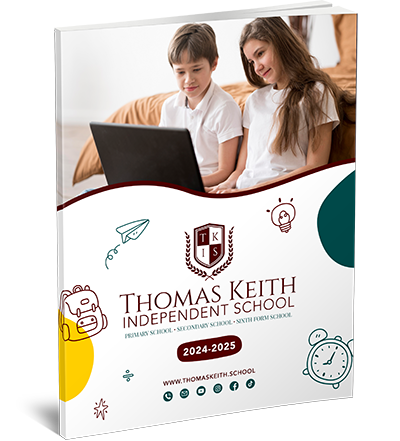
Key Stage 3
Key Stage 3 History: All-Inclusive Handbook
In the UK, Key Stage 3 (KS3) is a crucial educational stage that normally encompasses children between the ages of 11 and 14 (Years 7 and 9). To foster critical thinking and a broader comprehension of the world, Key Stage 3 history exposes young students to important historical events, movements, and figures. This article will discuss Key Level 3‘s organisation, objectives, and core history curriculum. It will also discuss how online independent schools, like Thomas Keith Online Independent School, provide flexible and thorough approaches to this level.
What is the third key stage?
Key Stage 3 is the educational phase that follows primary school and comes before the more specialised Key Stage 4. It covers a wide range of disciplines that get pupils ready for work at the GCSE level over three academic years. The curriculum promotes critical thinking, investigation, and conversation abilities as well as exploration.
Why Do History Lessons in Key Stage 3?
Key Stage 3 history gives pupils the skills to assess data, take into account various historical interpretations, and formulate well-reasoned arguments. It is not merely about dates and events. Students gain knowledge of the social, political, and economic factors that have shaped contemporary society by studying history at this stage.
Important Subjects in History at Key Stage 3. A combination of British and global history is usually included in the Key Stage 3 history curriculum. These fundamental subjects are frequently studied.
British Medieval Times (1066–1509)
The Norman Conquest: The important Battle of Hastings in 1066, the effects of Norman control, and the transformations in English society are all covered for students. The Domesday Book and Feudal System: Examining how the Norman kings came to dominate England. Medieval England: A glimpse into the everyday life of individuals in the Middle Ages.
1509–1745: Renaissance and Reformation
Henry VIII and Elizabeth I’s reign, as well as the major political and ecclesiastical shifts, are covered in Tudor England.
Reformation: The Church of England’s establishment following a break from the Catholic Church. Elizabethan Period: Students study the exploration, commerce, and cultural development that took place under Elizabeth I.
Industrialisation and Social Transformation (1745-1901)
Industrial Growth: How new technology changed British life and work.
The effects of child labor and working conditions on the general public, with a focus on working-class families and children.
An examination of movements and changes meant to enhance living circumstances in Victorian society.
Global Conflicts and the 20th Century
Causes of World War I, key engagements, and its aftermath.
World War II: The emergence of authoritarian governments, key combatants, and the war’s worldwide ramifications.
The welfare state, reconstruction, and shifting social structures in post-war Britain.
Methods for Teaching History in Key Stage Three To keep students interested, Key Stage 3 history teachers use a variety of teaching strategies:
Students analyze primary and secondary sources to comprehend various points of view.
Interactive Learning: Assignments like discussions and role-playing allow students to get fully immersed in historical events.
Students can hone their analytical and presentation skills by conducting research and presenting on issues through project-based assignments.
Online Independent Schools’ Function Keith, Thomas Online Independent School is a great illustration of how education is evolving to meet the demands of the modern world. Students can take advantage of flexible study schedules and interactive learning opportunities with complete Key Stage 3 history courses. All facets of the KS3 history curriculum are covered by online platforms’ recorded lessons, live sessions with knowledgeable teachers, and reference materials.

Advantages of Online Studying for Key Stage 3 History
Flexibility: Learners can study challenging material as needed and proceed at their own speed.
Access to Resources: Online learning environments offer discussion boards, multimedia materials, and digital libraries.
Interactive Learning: Thomas Keith Online Independent School and other remote learning systems use live Q&A sessions and virtual activities to keep students interested. Skills Acquired Through History in Key Stage 3 Students who study history at this level get useful skills: Analyzing causes and effects and contrasting opposing points of view are examples of critical thinking. Research Skills: Getting information from a variety of sources. Developing the capacity to express concepts clearly both orally and in writing is known as communication. Although they vary, Key Stage 3 History assessments frequently consist of the following:
Written Assignments: Reports and essays that assess a student’s comprehension and critical thinking. Exams: Both short- and long-form answers are used to assess knowledge and critical thinking.
Project Work: Individual or group endeavors that promote in-depth study of historical subjects.
The way Support for KS3 History at Thomas Keith Online Independent School History classes at Thomas Keith Online Independent School are organised, curriculum-aligned, and tailored to each student’s needs. Included in the school’s strategy are: Skilled Teachers: Trained instructors with a focus on interacting with students virtually. Adaptive learning tools include interactive materials and quizzes that change based on students’ progress. Tailored Feedback: Detailed feedback to support improvement is provided after routine evaluations.
FAQs
Q1. Which age range is covered by Key Stage 3?
Students in Key Stage 3 usually range in age from 11 to 14 (Years 7 to 9).
Q2. What is covered in history at Key Stage 3?
World War I, the Industrial Revolution, the Renaissance, and medieval Britain are among the subjects covered in Key Stage 3 history.
Q3. How can history students in Key Stage 3 benefit from online learning?
Online education makes studying history more interesting by offering flexibility, access to a wealth of resources, and interactive technologies.
Q4. Is it possible to study history at Key Stage 3 at an online school?
Indeed, a large number of online institutions, including Thomas Keith Online Independent School, provide thorough history courses for Key Stage 3.
Q5. By studying history in Key Stage 3, what abilities will my child acquire?
Through this level of study, students will gain research skills, critical thinking ability, and effective communication talents.
In conclusion,
Instilling a lifelong interest in learning about the past and laying the foundation for further study are two important educational goals of Key Stage 3 history. Students acquire a deeper understanding of the important events that affected the globe through traditional schools or contemporary online platforms like Thomas Keith Online Independent School, preparing them for difficulties in education and beyond.
![]()





